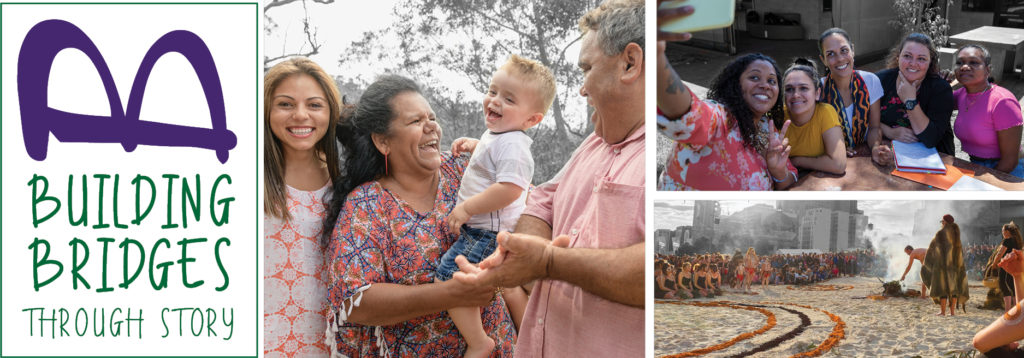
First Nations featuring Thomas Mayo – Saturday 19 November 1.30pm to 4.00pm
AN INSPIRING AFTERNOON
On Saturday 19 November 2022, nearly 150 people, including those representing various church and community groups, gathered in the Manningham Uniting Church Auditorium. We were there to learn more about First Nations people’s stories, the Uluru Statement from the Heart and the campaign for a constitutionally enshrined Indigenous Voice to Parliament. This was the final event for 2022 in the Building Bridges Through Story program.
The afternoon was opened by Ian Anderson, who acknowledged the Wurrundjeri Woi Wurrung people of the Kulin Nations, and paid respects to their Elders past and present, and to all their descendants. Ian welcomed the audience, speakers and special guests, who included Deirdre Diamente, the Mayor of Manningham, and Manningham Councillor Anna Chen.
This was followed by Rev Swee Ann Koh’s welcome address, during which he remarked that Story Telling connects people to place, time and each other, and that the Uniting Church’s Covenant with First Nations people is at the heart of the Church.
The principal speaker was Thomas Mayo, who began by giving a brief background to his current work. Born to Torres Strait Islander parents, and growing up in Darwin, at age 17 Thomas began working on Darwin Wharf. Through his Union involvement, he learned the value of unity, discipline, wise use of resources and social justice. Thomas became a Union Delegate at age 21, and by 2010 he was a Union Official.
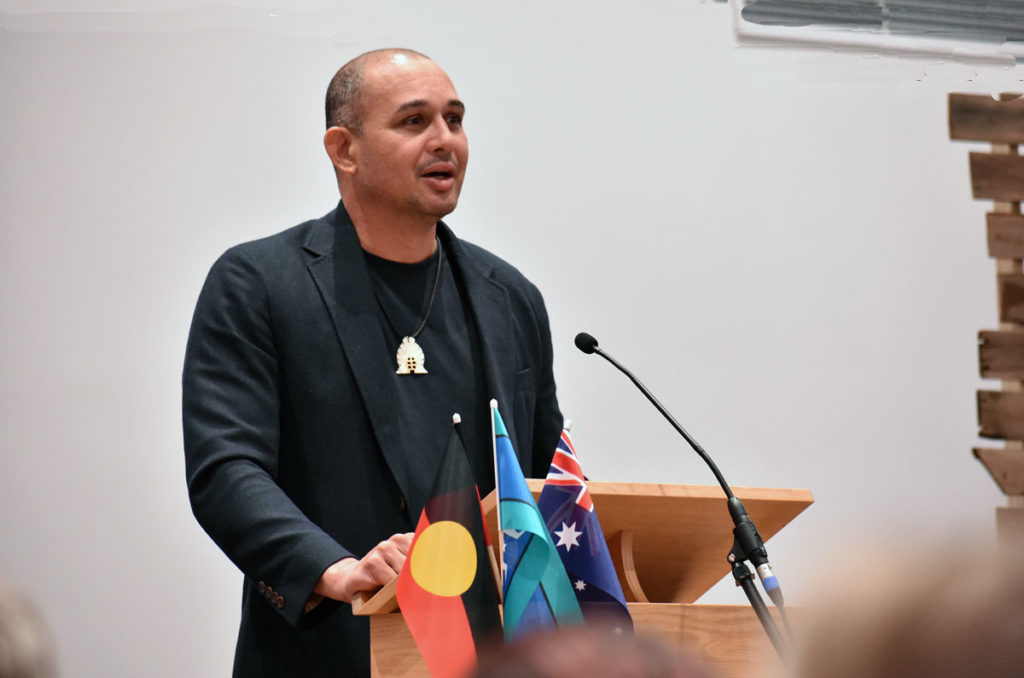
Around this time, Thomas became involved in advocacy for Indigenous people, using the lessons he had learned in his Union work. He realised that unity was vital to good outcomes, rather than different groups working separately.
The harsh reality is that Indigenous Australians have a 10% lower life expectancy than non-Indigenous Australians, a higher suicide rate, and are disproportionately represented in incarceration, particularly juvenile detention. These confronting statistics need to be acknowledged to motivate change.
Thomas observed that, since the 1920’s, petitions and representations have been made repeatedly to Parliament by Indigenous groups, but all have been ignored, and their authors silenced and degraded.
Thomas was a participant in the long, hard work that culminated in the Uluru Statement from the Heart, to which he was a signatory. It is his hope that it will not be ignored like its predecessors.
Thomas recited the Statement from the Heart, with the sincerity and feeling of one who had contributed to it, as the audience listened in awed silence, sensing the significance of this exciting moment in Australian History, that we are privileged to witness, and to be part of. We are invited to walk alongside our Indigenous brothers and sisters, and can participate in positive change, not only by voting YES in the Referendum at the end of 2023, but also by convincing others to vote YES.
The Referendum Question will need to be worded so that it clearly conveys three main points: firstly, that an Indigenous Voice will exist, secondly, that it will make representations to Parliament on behalf of Indigenous Australians, and thirdly, that Parliament will decide upon laws after listening to the Voice. Thomas is a member of the group of twenty who are working on the Referendum Question.
A high YES vote would be a powerful mandate for the Voice and make it difficult for any government to dismiss. Therefore, the YES campaign throughout 2023 will be of great importance, as the cost of failure would be very high. On the other hand, success will make Australia a fairer nation and be beneficial for everyone.
In the latter part of the afternoon, a Panel discussed the Referendum and related issues, and took questions from the audience. The Panel comprised Thomas Mayo, Tracey Evans from the First People’s Assembly of Victoria, Sharon Kouryialas from MUC and Dr. David Cousins, AM, a member of Koonung Heights Uniting Church with a long-term interest in Indigenous rights.
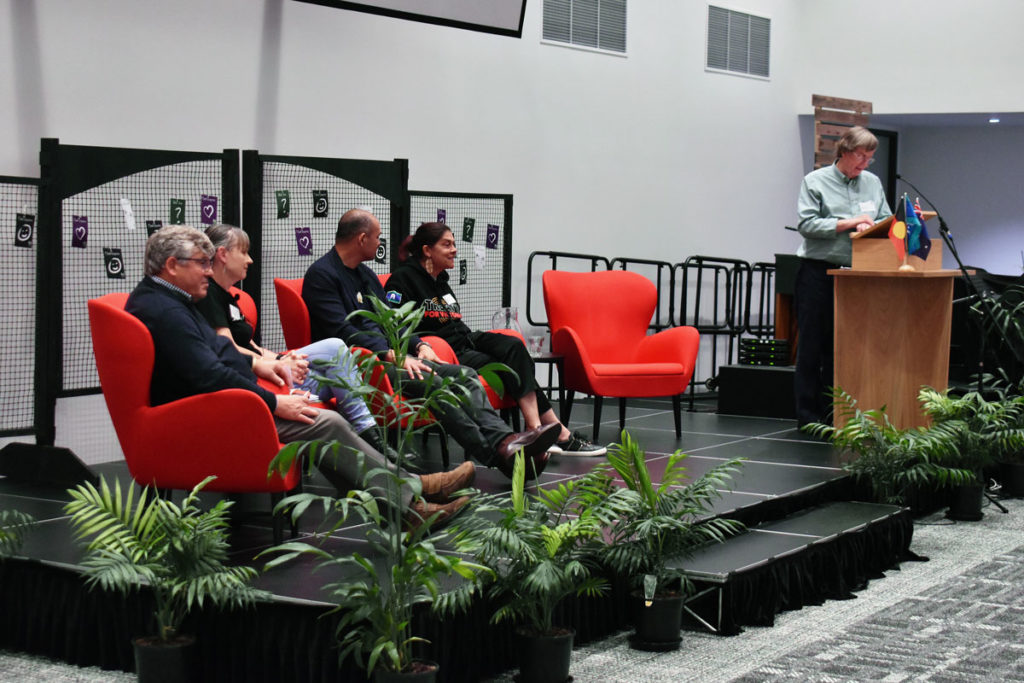
The discussion and questions revealed the need for community education about the issues underlying the Referendum, so that people can cast an informed vote. Non-Indigenous Australians need to know the disturbing truth of the current situation, and understand the process proposed for improving it. Factual information about existing problems, and clear explanations of the proposed solutions must be more convincing than any ‘scare campaign’ that the opponents of the Voice might promote.
Fifteen-year-old Elizabeth Hon asked what contribution can be made by people who are too young to vote. Thomas responded that youth can be powerful influencers and advocates within their schools and communities, in promoting awareness and providing information about the issues involved. Indeed, people of all ages can be involved in this important work.
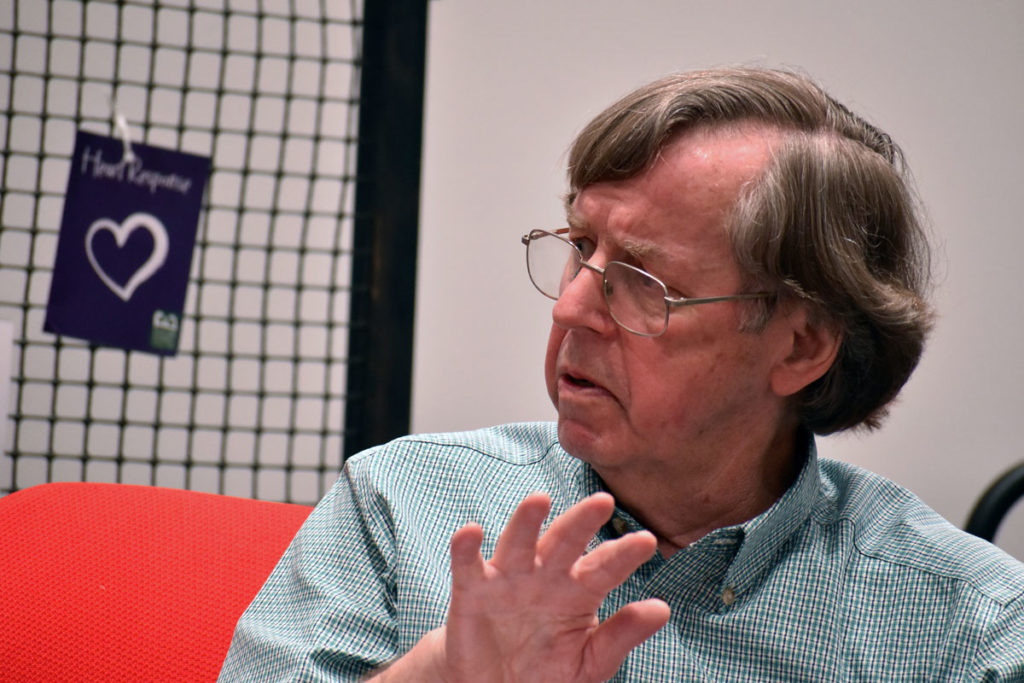
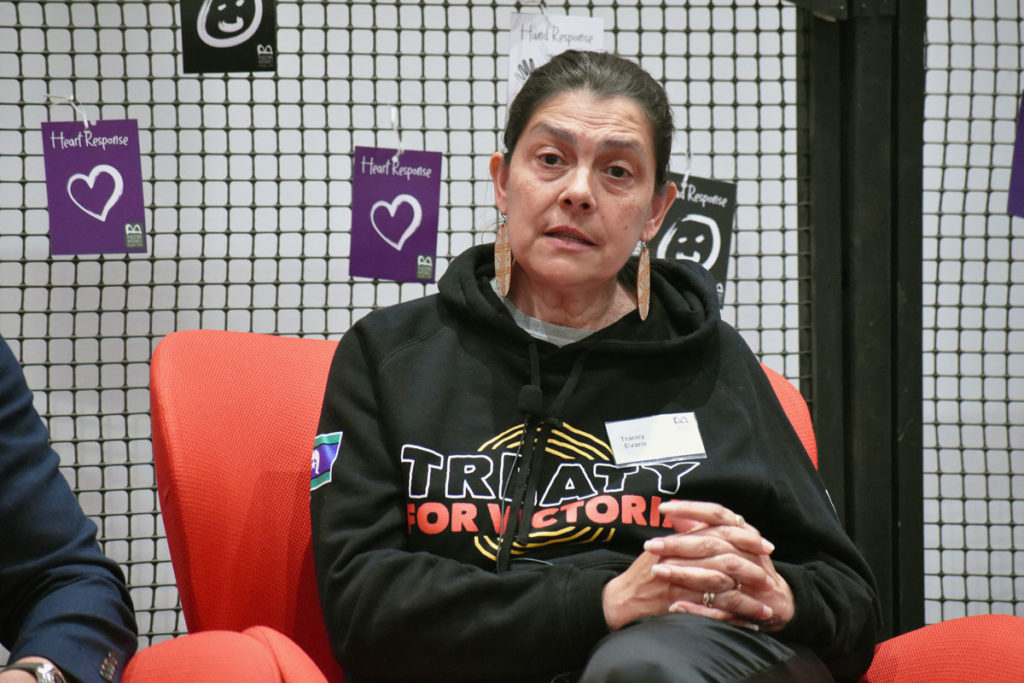
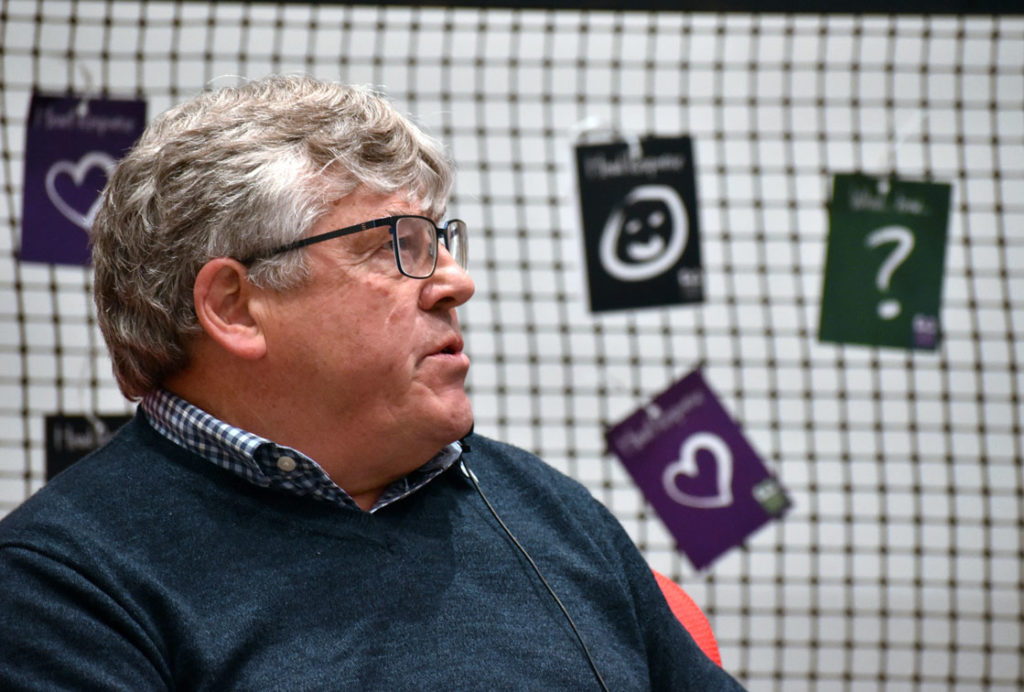
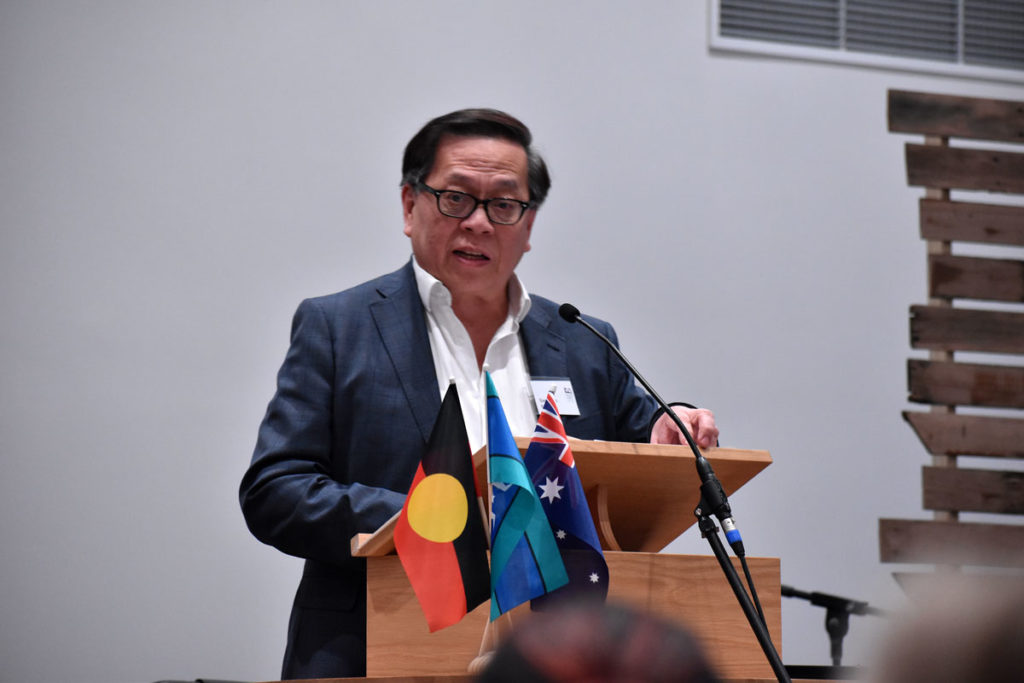
A question from a member of a Reconciliation Group highlighted the need for educational material to be translated into the languages of Australian citizens who have difficulty understanding English, who will be voting in the Referendum.
The panel was impressed to see the range of ages among the attendees, from youth to aged. Thomas acknowledged his friends and mentors Jim and Tui Beggs, who were sitting in the front row of the audience.
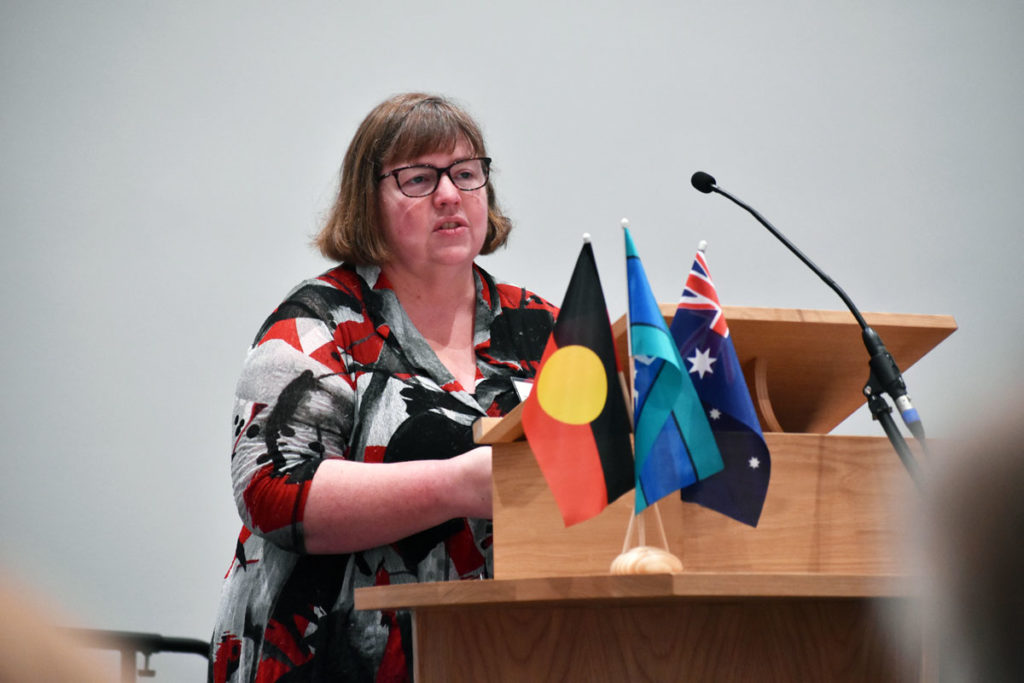

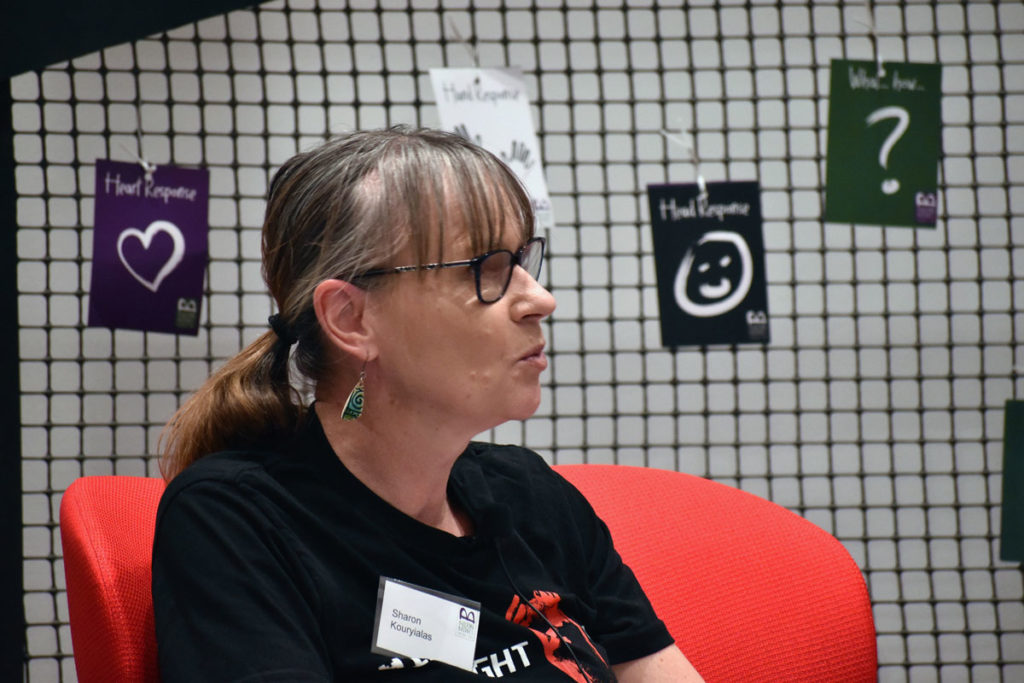
To conclude the afternoon, Rev Heather Hon, Minister of Koonung Heights Uniting Church, gave an excellent summary of the content, and thanked the Panel. In her closing comments, Heather observed that the audience were leaving as changed people, blessed by the speakers on the platform. It was an inspiring afternoon.
Peta Lowe,
Koonung Heights Uniting Church